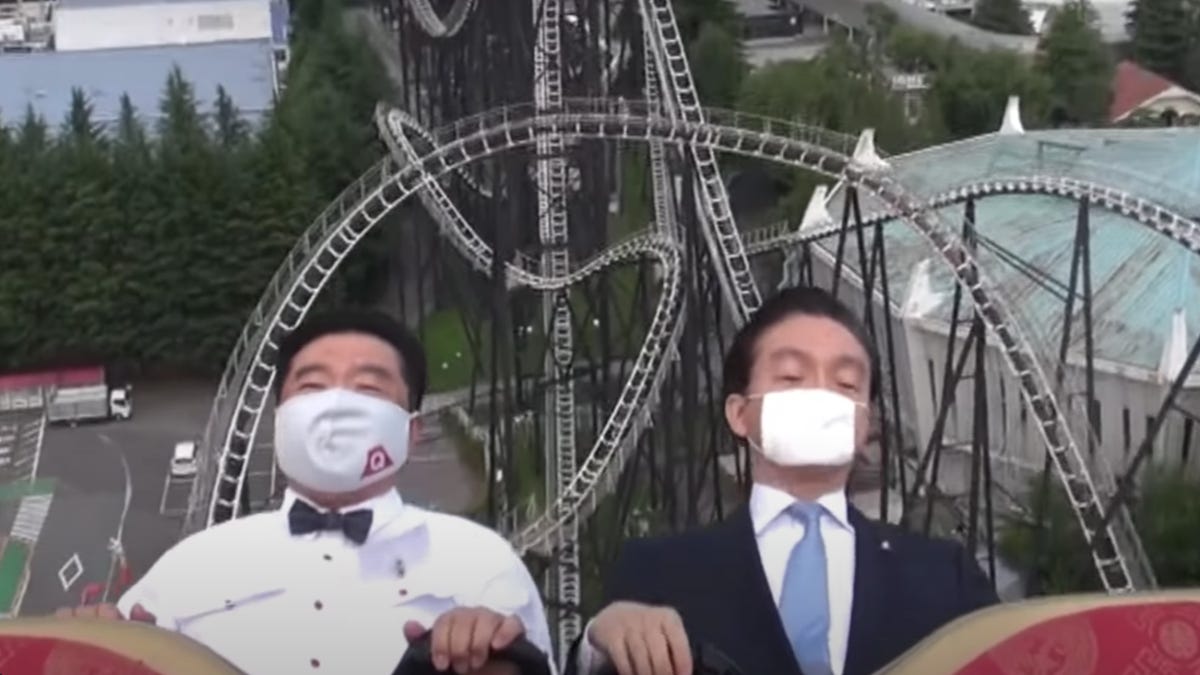California theme park group wants you to stop screaming on roller coasters
Let's just say this unenforceable suggestion has its ups and downs.

Executives from the Fuji-Q Highland amusement park in Japan show that a roller coaster can be ridden silently, though park patrons aren't finding it this easy.
This may be one of the biggest challenges of the coronavirus outbreak, much more difficult for most people than strapping on a face mask. A California theme-park trade group is joining those in Japan and recommending ways to limit screaming on roller coasters and other thrill rides, since screams produce saliva droplets that can spread COVID-19.
The California Attractions and Parks Association recently published a list of best practices for reopening parks. The document is no doubt looking ahead to April 30, when Disneyland and California Adventure are set to reopen after having been closed since March 2020.
The document doesn't flat-out say "don't scream." Instead, it notes that parks have the "ability to limit activities that are known to cause increased spread (e.g.: singing, shouting, heavy breathing." It goes on to say that the use of face masks and the fact that riders usually all face in the same direction would help minimize droplet spread, and notes that "modifications to seat loading patterns will be required on amusement park rides to mitigate the effects of shouting."
The group isn't the first to think of this. Back in July 2020, Japan's theme-park associations went a step further and asked roller-coaster riders not to scream at all -- and offered a video example.
A four-minute video released last summer shows two executives from the Fuji-Q Highland amusement park, Daisuke Iwata and Koichiro Horiuchi, formally clad and properly masked, riding the park's Fujiyama coaster, which revs up to 80 miles per hour (128 kilometers per hour). They're a lesson in calm. One adjusts his hair and mask. Their hands clench the safety bars tightly. Their bodies shake back and forth, as they take deep plunges and tight turns that send them sideways. But from beginning to end, they're as quiet as sleeping kittens.
The video ends with a pretty laughable message, which naturally turned into a meme: "Please scream inside your heart."
The science may make sense, but stomach-dropping terror respects no health guidelines. We're all riding an emotional roller coaster these days, anyway.

